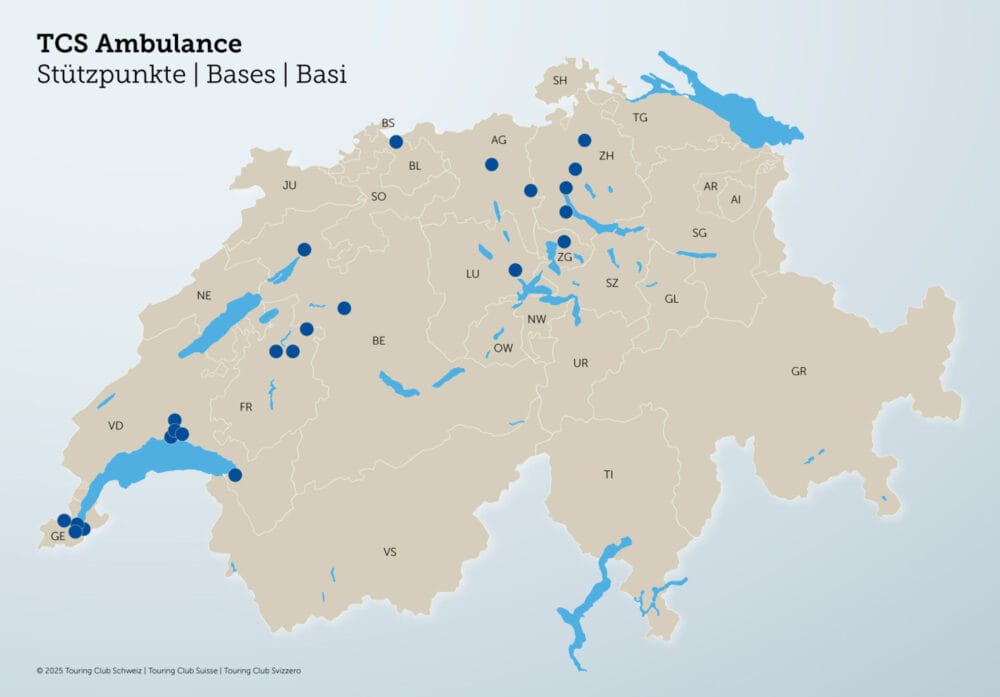National Health Report 2025: Mental health is a task for society as a whole
The majority of the population in Switzerland is mentally healthy. At the same time, mental illnesses are widespread, burden those affected and their relatives and cause high costs. Comorbidity is common, be it within the mental health conditions or in combination with physical complaints. The social or work-related context, health literacy, digital media, the environment and the healthcare system all play an important role for the psyche. The Swiss Health Observatory's (Obsan) National Health Report 2025 provides a comprehensive overview of scientific literature and makes specific recommendations.

In 2022, over 90 percent of the population said they had a good quality of life and 70 percent felt happy. At the same time, mental illness is common: one in two people will be affected at some point in their lives. Mental stress among children, adolescents and young adults has increased - this has also been observed internationally. This negative trend was already apparent years before the Covid-19 pandemic.
The rate of non-assisted suicides has been declining for decades and remains highest among men over 75. Less information on mental health has been available since 2023. Current data on mental illness or the mental health of children under the age of 10 is completely lacking.
Social inequality and environmental factors as influencing factors
Mental health is closely linked to social living conditions: a lower household income, a lower level of education, loneliness, experiences of violence or stressful childhood experiences increase the risk of mental health problems. At the same time, mental illness can in turn lead to poverty and restrict social participation. Although socially disadvantaged groups are more frequently affected by mental health problems, they do not seek treatment more often in Switzerland than socially better-off groups.
Digital media facilitate social contacts, access to information and offer opportunities in telemedical care. At the same time, they harbor risks such as cyberbullying, sleep disorders or negative influences on self-esteem and body image. The decisive factor is less the duration of use than the type and content of digital media use. This has been little studied. Environmental factors such as noise also have a measurable impact on mental well-being. Opportunities for Switzerland arise from easily accessible green spaces or exercise-friendly living environments.
Efforts are needed to prevent job losses
The majority of working people in Switzerland are satisfied with their work, but a quarter to a third report stress or exhaustion. Around 20% of employees have a mental health problem that has a negative impact on the work context. In such cases, there is too little communication between those providing treatment, employers and employees. Sick leave for psychological reasons is usually full-time and lasts an average of 7 months. In half of these sick notes, the employment relationship is terminated. A more rehabilitative approach to sick leave could promote job retention. For young adults, IV pensions due to psychological diagnoses have been increasing for years, but the reasons for this development are unclear.
Health promotion and prevention: broad commitment, little overview
Numerous stakeholders such as the federal government, cantons, municipalities, universities, foundations, Health Promotion Switzerland and NGOs contribute to the many activities to promote mental health. Evaluated and disseminated projects ("examples of good practice") have increased their reach in recent years. They show good results with the respective target groups in terms of strengthening various resources (e.g. increase in knowledge). However, a systematic overview of all measures and information on their effectiveness is lacking. Another challenge is the sustainable financing of the measures.
Increased utilization and capacity bottlenecks in supply
Psychiatric and psychotherapeutic care is easily accessible in Switzerland, but is unevenly distributed across the regions. The density of psychiatrists and psychologists in private practice is many times higher in urban centers than in rural areas. The use of psychiatric-psychotherapeutic services has risen continuously over the last ten years - both in the inpatient and outpatient sector. According to specialists, child and adolescent psychiatry in particular is suffering from capacity bottlenecks. The impending wave of retirements and growing demand are exacerbating the shortage of specialists. These developments suggest a discussion about human resources and the attractiveness of medical and non-medical professions in psychiatric-psychotherapeutic care. Where is the greatest need for specialists, should severe outpatient cases be prioritized, medical training strengthened and non-medical specialists and peers better integrated?
Recommendations for society, politics and practice
The report formulates 39 specific recommendations. These are divided into five central areas of action: Understanding mental health as a task for society as a whole, strengthening the evidence base through targeted data collection and the promotion of scientific studies, implementing and evaluating prevention and health promotion measures, promoting mental health in the workplace and ensuring labor market integration, and ensuring needs-based, accessible and high-quality care.
The National Health Report 2025 "Mental health in Switzerland: development, promotion, prevention and care" is published by the Swiss Health Observatory (Obsan) on behalf of the National Health Policy Dialogue, the permanent platform of the Confederation and the cantons. The report comprises twelve thematic chapters, in which the authors have researched, analyzed and summarized national and international scientific literature and data sources, depending on the issues at hand. The report is available free of charge at www.gesundheitsbericht2025.ch as a web publication and as a PDF. The electronic versions are available in German and French and are supplemented by an Italian abridged version. The report (468 pages, CHF 66.20) can be ordered on the Obsan website.
www.gesundheitsbericht2025.ch









